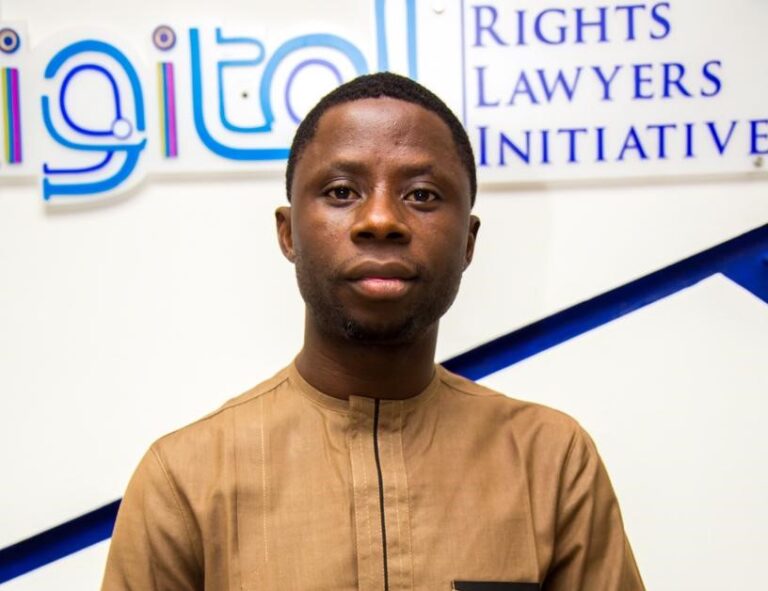The ECOWAS Court of Justice has declared some of the offences and sanctions contained in the Nigeria Broadcasting Code a violation of the right to freedom of expression as they contravene the African Charter on Human and Peoples’ Rights and ordered the Nigerian Government to stop applying them until the Code is brought into conformity with the provisions of the Charter.
In a judgment it delivered on October 23, 2023 in a suit instituted against the Nigerian Government by a non-governmental organization, Incorporated Trustees of Expression Now Human Rights Initiative, the Court ordered the Government to align the provisions of the Code with its international obligations.
Lagos-based lawyer, Mr. Solomon Okedara, filed the suit on behalf of Expression Now Human Rights Initiative on September 4, 2020, following a N5 million fine imposed by the National Broadcasting Commission (NBC) on a Lagos-based radio station, Nigeria Info 99.3 FM, for allegedly breaching Section 3.1.1 of the Broadcasting Code in an interview with a former deputy governor of Central Bank of Nigeria (CBN), Mr. Obadiah Mailafia, during its programme called “Morning CrossFire”, which was aired on August 10, 2020. Mr. Mailafia made allegations during the interview of official complicity in the Boko Haram insurgency in the North East of Nigeria.
The organization contended that the NBC’s action violated Article 9(1)(2) of the African Charter; Article 19 of the International Covenant on Civil and Political Rights (ICCPR) and Article 66(2) of the Revised ECOWAS Treaty and asked the court, among other things, to declare as void Articles 3.1.1, 3.1.2, and 15.2.1 of the 6th edition of the NBC Code as well as Article 15.5.1 of the amendment to the Code.
Article 3.1.1 provides that “No broadcast shall encourage or incite to crime, lead to public disorder or hate, be repugnant to public feelings or contain offensive reference to any person or organization, alive or dead or generally be disrespectful to human dignity.”
Article 3.1.2. stipulates that “Broadcasting shall promote human dignity, therefore, hate speech is prohibited. The Broadcaster shall not transmit any programme, programme promotion, community service announcement or station identity, which is likely, in any circumstance, to provoke or perpetuate in a reasonable person, intense dislike, serious contempt or severe ridicule against a person or groups of people because of age, colour, gender, national or ethnic origin, disability, race, religion or political leanings.”
Article 15.2.1 provides that “The sanctions for Class A are:
a. immediate order of suspension of broadcast services;
b. suspension of licence and immediate shut down/seal up of transmitter; or
c. revocation of licence, seizure and forfeiture of transmitting equipment.”Article 15.5.1 of the amendment to the Code provides that “The following penalties shall apply in respect of a breach committed by the Broadcaster:
(a) Light ….. N200,000.00 – N500,000.00
(b) Heavy ….. N500,000.00 – N4,999,000.00
(c) Severe …… N5,000,000.00 and above.
In its response to the suit, the Federal Government denied violating the right to freedom of expression of the organization, stressing that it had a duty to protect the rights of citizens.
The Government argued that the NBC Code aims to promote local content, prevent monopolistic practices, and boost advertising revenue for local broadcasters and content producers, adding that the NBC was authorized to penalise stations for broadcasting content that incites hate or public disorder.
It also denied that it was using the Code to stifle freedom of expression or harass the organization and urged the Court to dismiss the suit for lack of merit.
In the Court’s judgment, the panel which heard the case, consisting of Dupe Atoki, presiding; Sengu Mohamed Koroma, judge rapporteur, and Ricardo Cláudio Monteiro Gonçalves, member, held that it had jurisdiction in matter and declared the suit admissible.
It also ruled that Articles 3(1)(1), 3(1)(2), 15(2)(1) of the Nigeria Broadcasting Code (6th Edition) and Article 15(5)(1) of the Amendment to the Code contravened Article 9(1)&(2) of the African Charter.
The court therefore ordered the Nigerian Government to align Articles 3(1)(1), 3(1)(2), 15(2)(1) of the Nigeria Broadcasting Code and Article 15(5)(1) of the amendment to the Code with its international obligations.
In addition, it ordered that Nigeria to cease to give effect to the provisions until it has aligned them with its international obligations as ordered.
The Court dismissed the other claims made by the organization.







